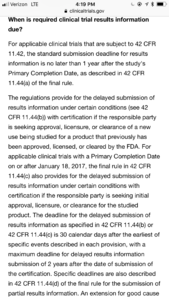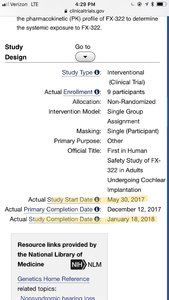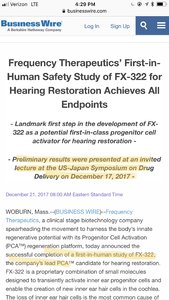They already had a phase 1.
Why have another?
It's all crap.
The FDA can be bought like any other government department.
The only reason they want FDA to be on board is so the insurance companies can pay for the drug they release if there is ever any released.
I'm sorry, I know I'm mad, but I'm so damn tired of this noise. I would have rather got something else than this. Anything else. It's nothing but cruel suffering to all that have it
There are millions of stuff out there that says not FDA approved.
I think they're just stalling because it does not work.
I'm sorry for being so upset. I'm just tired of waiting.
Why have another?
It's all crap.
The FDA can be bought like any other government department.
The only reason they want FDA to be on board is so the insurance companies can pay for the drug they release if there is ever any released.
I'm sorry, I know I'm mad, but I'm so damn tired of this noise. I would have rather got something else than this. Anything else. It's nothing but cruel suffering to all that have it

There are millions of stuff out there that says not FDA approved.
I think they're just stalling because it does not work.
I'm sorry for being so upset. I'm just tired of waiting.

 Member
Member
 Manager
Manager

